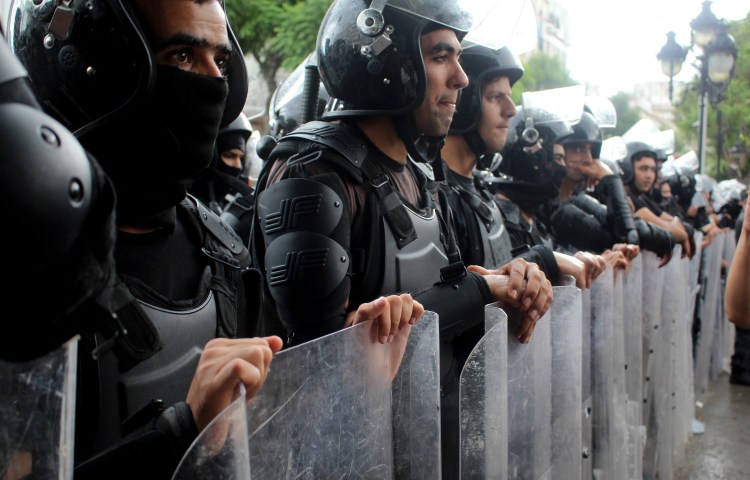
Tunisia’s media regulator shuts down Nessma TV and al-Quran al-Kareem radio station over licensing issues
New York, October 27, 2021 – Tunisian authorities should allow Nessma TV and al-Quran al-Kareem radio station to resume broadcasting immediately and stop using the country’s licensing procedures as a means of censorship, the Committee to Protect Journalists said today. On October 11, the High Independent Authority of Audiovisual Communication (HAICA), Tunisia’s media regulatory…
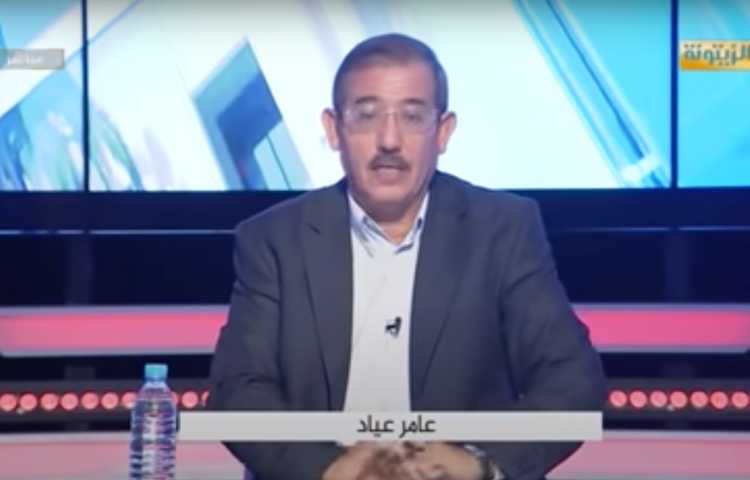
Tunisian authorities arrest Zaytouna TV host Amer Ayad, confiscate channel’s equipment
New York, October 7, 2021 – Tunisian authorities must immediately and unconditionally release journalist Amer Ayad, drop all charges against him, and allow ZaytounaTV to resume its work, the Committee to Protect Journalists said today. On October 3, Tunisian police arrested Ayad, a talk show host for privately owned channel Zaytouna TV, at his home…
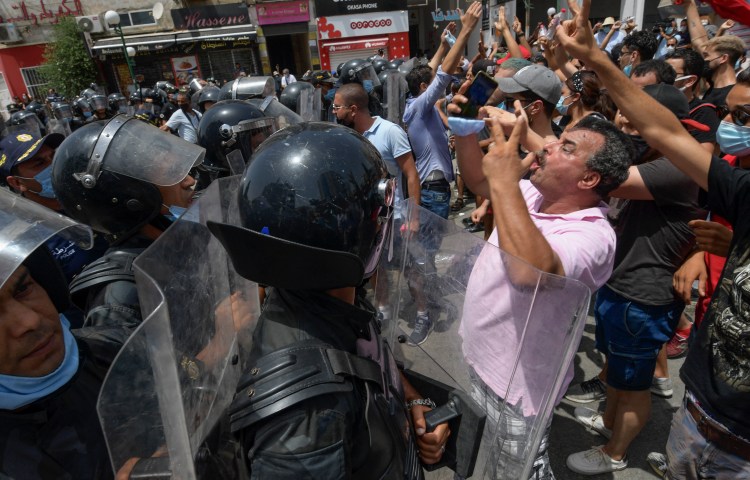
Demonstrators and security forces harass, obstruct journalists covering Tunisia protests
On July 25 and 26, 2021, protestors and security forces in Tunis, Tunisia, assaulted and harassed at least six journalists covering demonstrations, according to news reports, journalists who spoke to CPJ and posted their experiences on social media, and a statement by the National Syndicate of Tunisian journalists (SNJT), a local trade union. The journalists…
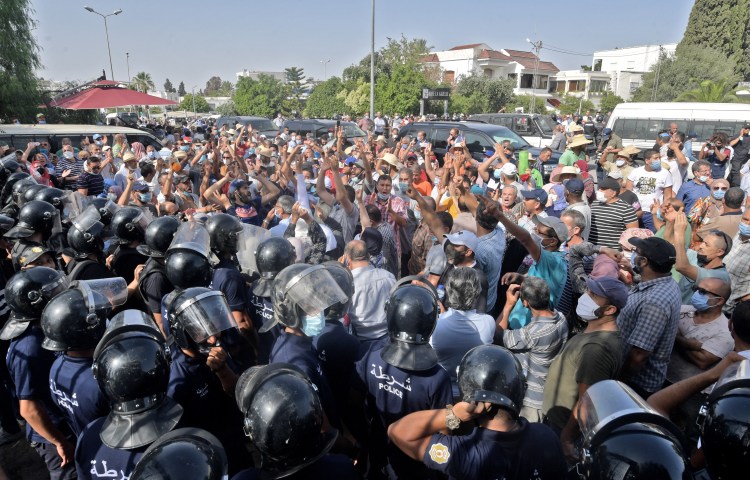
Tunisian authorities raid Al-Jazeera bureau amid political turmoil
New York, July 26, 2021 – In response to news reports that Tunisian security forces today stormed Qatari broadcaster Al-Jazeera’s Tunis bureau, ordered staff to leave the building, confiscated equipment, and barred staff from returning, the Committee to Protect Journalists issued the following statement: “Today’s raid by Tunisian security forces on Al-Jazeera’s bureau jeopardizes the…
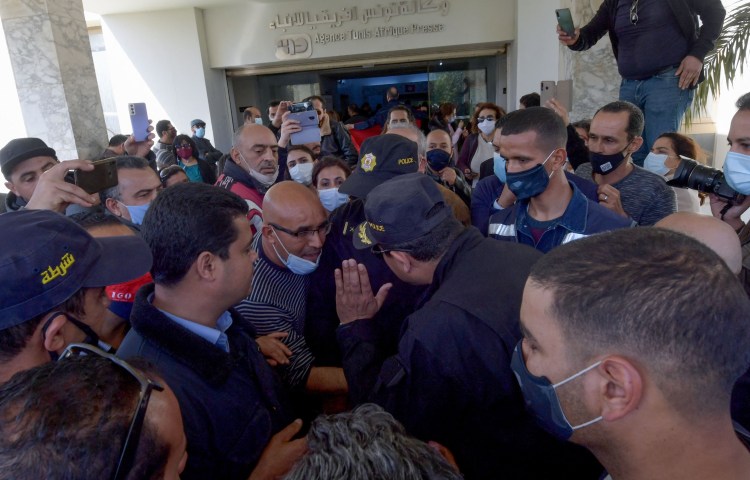
Tunisian police raid TAP news agency to enforce appointment of pro-government director
New York, April 14, 2021 — Tunisian authorities should respect the independence of the state news agency Tunis Afrique Presse (TAP), and refrain from using security forces to interfere in the agency’s personnel issues, the Committee to Protect Journalists said today. Yesterday, police officers forcibly entered TAP’s headquarters in Tunis, the capital, to break up…
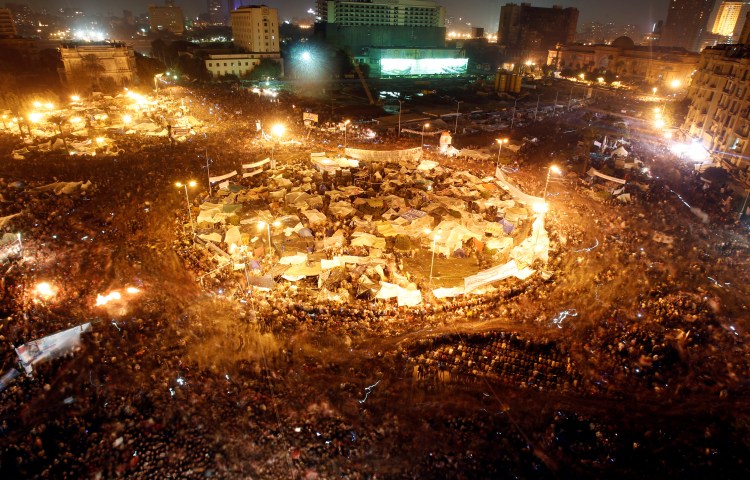
Ten years after the Arab Spring, the region’s media faces grave threats. Here are the top press freedom trends
In early February 2011, Alaa Abdelfattah was in Egypt’s Tahrir Square, documenting and participating in the nascent pro-democracy uprising that would topple the government and transform the country and the region. Today, he is in prison on anti-state and false news charges, which his family believes are partly retaliatory for his work. Abdelfattah is one of…
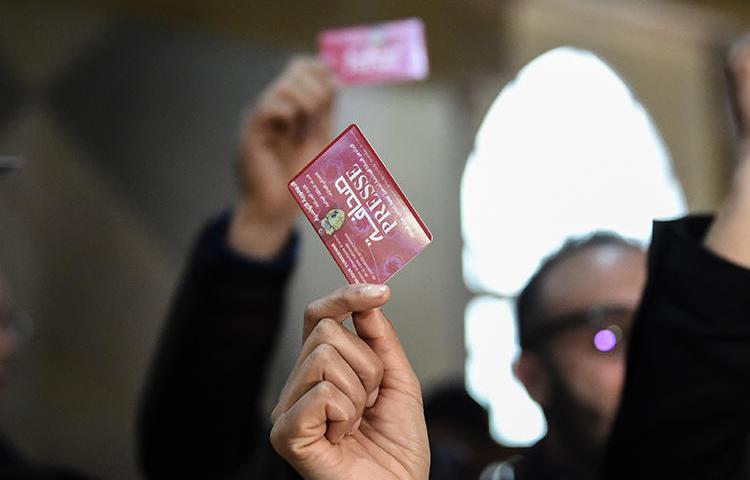
Upcoming elections could make or break Tunisia’s fledgling free press
Tunisia’s progression to a freer society took center stage this month, as journalists, digital rights activists, and tech companies gathered in Tunis for RightsCon and the IFJ congress. Tunisia has secured greater press freedom than many of the Arab Spring countries, but local journalists told CPJ that with elections slated for this year, challenges including…
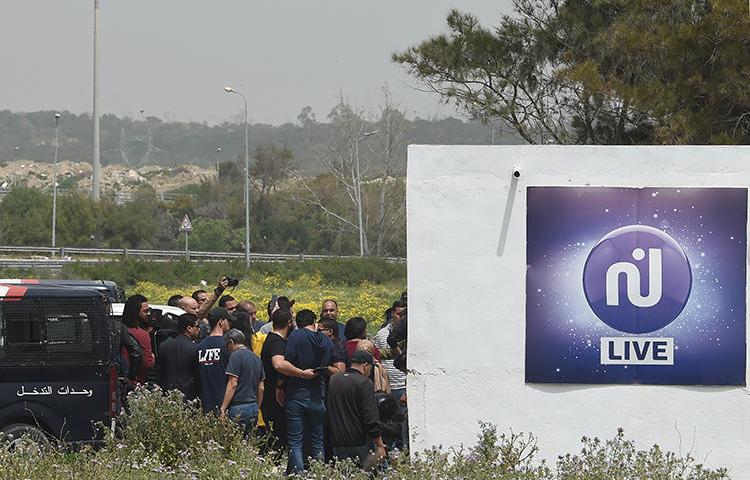
Tunisian media regulator shuts down Nessma TV, citing regulatory violation
On April 25, 2019, Tunisian police raided the studios of privately owned television broadcaster Nessma TV and confiscated its broadcasting equipment following a ruling by the High Independent Authority of Audiovisual Communication, the country’s media regulator, stating that the broadcaster did not have proper legal status, according to Reuters and local news reports.
Tunisian police beat reporter, seize his equipment at protest
Tunisian police beat Hamdi al-Souissi, a reporter for the local radio station Diwan FM, seized Souissi’s recording equipment, detained him, and questioned him for two hours at a precinct in in the country’s eastern city of Sfax, on September 18, 2017, local media reported.

Tunisian security forces interrogate news website cofounder
Officers from the Tunisian National Guard’s Central Investigation Brigade interrogated Sami Ben Gharbia, the cofounder of the independent news website Nawaat, for six hours on May 3, 2017, demanding that he reveal the sources of an April 24 article about a draft economic and financial reconciliation law, Ben Gharbia told the Committee to Protect Journalists.…